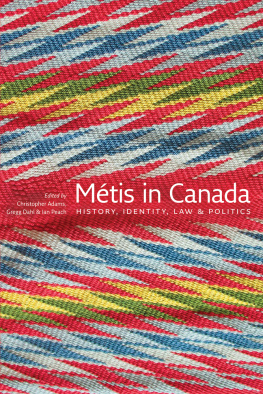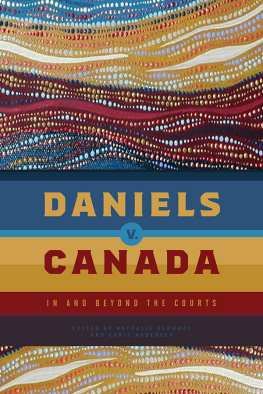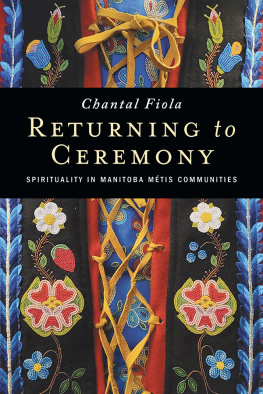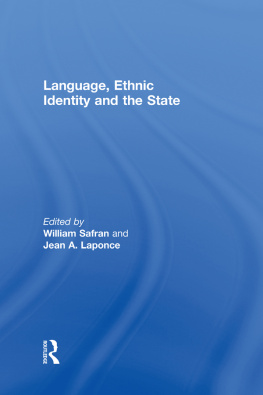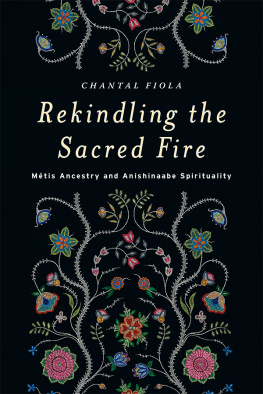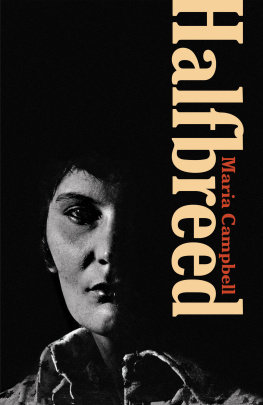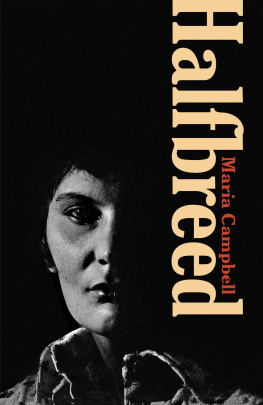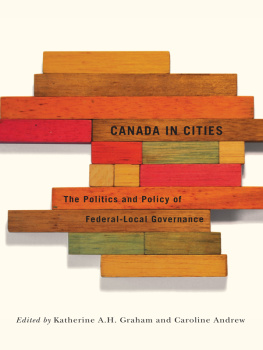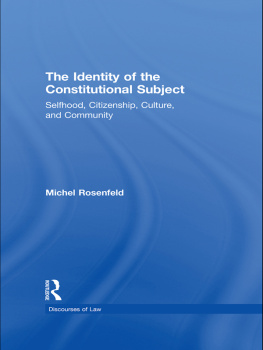
Published by
The University of Alberta Press
Ring House 2
Edmonton, Alberta, Canada T6G 2E1
www.uap.ualberta.ca
Copyright 2013 The University of Alberta Press
Library and Archives Canada Cataloguing in Publication
Mtis in Canada [electronic resource] : history, identity, law and politics / Christopher Adams, Gregg Dahl, and Ian Peach, editors.
Includes bibliographical references.
Electronic monograph.
Issued also in print format.
ISBN 978-0-88864-718-4 (EPUB).
1. Mtis--History. 2. Mtis--Legal status, laws, etc. 3. Mtis--Politics and government. 4. Mtis--Ethnic identity. I. Adams, Christopher, 1960- II. Dahl, Gregg III. Peach, Ian, 1965
FC109.M492 2013 971.00497 C2013-901842-5
Print edition ISBN: 978-0-88864-718-4.
First edition, rst printing, 2013.
First electronic edition, 2013.
Digital conversion by Transforma Pvt. Ltd.
Copyediting and proofreading by Brendan Wild.
Indexing by Judy Dunlop.
Book cover design by Alan Brownoff.
All rights reserved. No part of this publication may be produced, stored in a retrieval system, or transmitted in any form or by any means (electronic, mechanical, photocopying, recording, or otherwise) without prior written consent. Contact the University of Alberta Press for further details.
The University of Alberta Press gratefully acknowledges the support received for its publishing program from The Canada Council for the Arts. The University of Alberta Press also gratefully acknowledges the nancial support of the Government of Canada through the Canada Book Fund (CBF) and the Government of Alberta through the Alberta Multimedia Development Fund (AMDF) for its publishing activities.
This book has been published with the help of a grant from the Canadian Federation for the Humanities and Social Sciences, through the Awards to Scholarly Publications Program, using funds provided by the Social Sciences and Humanities Research Council of Canada.

To my wife Sue and my parents Paul and Louise Adams for their kindness, love and support; and numerous professors who helped guide me, sometimes with success, through days of intellectual darkness. CHRISTOPHER
To my parents, for distilling my curious mind and always pointing out to me when the Emperor was naked. And, to the memory of my friend Dr. Jerry Hanham, for his willingness to listen tirelessly to my thoughts and offer encouragement nevertheless. GREGG
To those who engaged my interest in constitutional law, equality, diversity and justice, most notably John D. Whyte; to my Mtis friends, who taught me so much about the diversity of identities that exist within the community labelled Mtis; and to the memory of our late friend Jerry Hanham, as loyal and generous a friend and colleague as one could ever ask for. IAN
Contents
Re-presentations of Mtis in the Great Lakes Area in the Nineteenth Century
GLORIA JANE BELL
Three Stories and the Storyteller
LAURA-LEE KEARNS
GREGG DAHL
The Ethnogenesis of the Wiisakodewininiwag (Bois-Brl) Reconsidered
DARREN OTOOLE
Sharing and Exchange in Northwest Saskatchewan
LIAM J. HAGGARTY
GLEN CAMPBELL & TOM FLANAGAN
Mtis Aboriginal Rights Jurisprudence in Canada
IAN PEACH
Mtis Rights in Canadian Courts
JEREMY PATZER
Mtis Political Organization and Governance in Canada
KELLY L. SAUNDERS
A Brief Social History of the Development of Mtis Political Organization in Canada, 18152011
SIOMONN P. PULLA
Building a Mtis Government in Saskatchewan
JANIQUE DUBOIS
Using Interest Group Strategies
CHRISTOPHER ADAMS
Mtis as a Unique, Diverse, Complex and Contingent Concept in Canada
Introduction
THE IDEA behind having a collection of essays devoted to Mtis in Canada began developing at the 2009 Aboriginal Policy Research Conference in Ottawa, at which the three of us were in attendance and presenting papers. Over dinner one evening, possibly inspired by the breadth of research presented at the conference, we began to discuss the challenges involved in understanding the complexity that is the Mtis reality in Canada, particularly after the 2003 Powley decision. Out of this discussion came our two-year journey toward the completion of Mtis in Canada: History, Identity, Law and Politics , which included a call for contributors across multiple disciplines and regions, the usual editing, and follow-up discussions with each of the worthy contributors you will meet in this volume, all of whom have been a joy to work with.
As indicated, our initial discussions revolved around the change to the Mtis conceptual landscape that was the outcome of the 2003 Powley decision from the Supreme Court of Canada. One interesting aspect of the written decision was that the Court referred to a scholarly paper from a 1985 collection of essays on the Mtis. This paper was Many Roads to Red River: Mtis Genesis in the Great Lakes Region, 16801815 in The New Peoples: Being and Becoming Mtis in North America , edited by Jennifer Brown and Jacqueline Peterson. This seminal collection contains several papers that were the most advanced scholarly writing on the Mtis at the time. Over 20 years later, we wanted to bring together a collection of papers written after the Powley decision; a collection in which all the papers were written a sufficient amount of time after the decision that the implications of the conceptual change it produced had had time to seep into the thinking of people engaged with Mtis issues. We also wanted to bring together a collection that provided a forum for some relative newcomers to Mtis scholarship and policy because their novel and innovative approaches to the developing understanding of the Mtis reality provide us the opportunity to make a unique contribution to the body of literature on the Mtis in Canada.
One of the preoccupations of Mtis studies prior to the Powley decision was a keen attention to terminology. Writers invented terms to clarify the concepts they used to identify the people they were talking about. We want to take notice of this issue and preoccupation, since it was the focus of much discussion in Mtis studies. In this collection, the reader should rely on the explicit intentions of the authors, should any distinctions in spelling or word use be needed in order to bring clarity to the specific chapter. The general issue seems, ultimately, to have been anchored in a desire to distinguish the Red River Mtis from other Mtis populations, a consequence of an emerging nationalism and sense of distinct identity that the Red River Mtis are widely acknowledged to have developed in the 1980s and 1990s. It is also important to point out that there has been an aversion to the use of the term half-breed, which resulted in the invention of terms for the Half-breeds from the English-speaking parishes of the Red River Settlement, including country-born and mixed-blood. As well, a mixture of capitalization and italics in the term Mtis was used primarily to avoid the use of the word half-breed.
For its part, the Supreme Court of Canada was far less concerned about terminology than it was about the historical realities of Mtis communitiesand certainly far less concerned about terminology than the scholarly and activist communitieswhen confronted with the need to make a decision in Powley . According to the Supreme Court, if a Mtis group is to be considered a rights-bearing community, the historical dynamic of an ethnogenesis as a distinct community is a necessary condition. The Supreme Court did not, however, bother with any worries about terminology; whatever this distinct community decided to label itself, it was a Mtis community, in the Courts sense of the term, if the substantive conditions had been met. It is the substantive aspects that were important to the Court that provided the following definition in the Powley decision: A Mtis community is a group of Mtis with a distinctive collective identity, living together in the same geographic area and sharing a common way of life. Thus, according to the Supreme Court, a Mtis community could conceivably exist anywhere in Canada.
Next page
